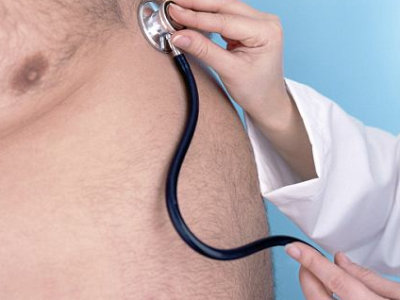The possibility of rejuvenating `` biological age '' for the first time in the world is shown

by
The technology that rejuvenates tissues is a research area that has been attracting attention in recent years because it can help treat diseases associated with aging. Apart from the calendar age, there is a concept of `` Biological Age '' that is required from the degree of aging of tissues and cells, but rejuvenating this biological age by taking a combination of three drugs For the first time in the world
First hint that body's 'biological age' can be reversed
https://www.nature.com/articles/d41586-019-02638-w
Steve Holvert , a professor of genetics at the University of California at Los Angeles, has long advocated an “epigenetic age” as the biological age desired by DNA methylation. A study of the successful rewinding of this epigenetic age in the world was published in the September 3 issue of Aging Cell .
A clinical trial called `` The Thymus Regeneration, Immunorestoration and Insulin Mitigation '' (TRIIM) conducted by Gregory Faye, CEO of startup Intervene Immune A combination of three kinds of anti-diabetic drugs, cocktail therapy . According to the researcher, after analyzing the subject's genome after the experimental period, it turned out that the biological age had decreased by an average of 2.5 years. The subject's immune system also showed signs of rejuvenation.
Epigenetics clocks, which are biomarkers of epigenetic age (biological age), typically use epigenomic techniques such as chemical modification to add methyl groups to DNA. The pattern of the methyl group as a tag changes with age, and the biological age is tracked, but it is later than the calendar age or conversely exceeds the calendar age.

by
The latest clinical trial conducted by Faye was mainly to investigate the question: 'Does growth hormone repair human thymus tissue in a way that does not harm humans?' The thymus is important for human immune function. White blood cells are made from the bone marrow , but then grow in the thymus and turn into T cells that fight infection and cancer. However, from the end of puberty, the thymus regresses with fat.
Previous studies on animals and humans have shown that growth hormone stimulates thymic regeneration, but at the same time it has the problem of promoting diabetes. Therefore, in this study, we tried to suppress the promotion of diabetes by taking two types of diabetes medicines, DHEA and metformin .
In this TRIIM clinical trial, blood samples were collected and the blood counts showed a tendency to rejuvenate during the trial period. MRI scans of the thymus at the start and end of the study confirmed that thymus tissue had been regenerated in 7 out of 9 subjects.
After the clinical trial, Faye asked Holbert to analyze the effect of the drug. Holbert used multiple epigenetics clocks to assess the biological age of the subjects, and all studies showed that the subjects were biologically rejuvenated. In addition, six subjects who provided blood samples after the study ended had sustained effects over the next six months.

by Edu Carvalho
However, this study is targeted at “white men from the age of 51 to 65” and is not very evidenced in that it is very small and does not use comparison groups. Other researchers also point out that “they will be effective, but the results are not solid because they were small and not controlled”. On the other hand, Mr. Holvert, who conducted epigenetic analysis, said, `` I expected that the epigenetics clock in my body would slow down, but I thought it would not be rejuvenated. '' He stated that the research results were unexpected and commented that the research was 'feeling the future'.
Faye believes that the method in clinical trials will be effective for people suffering from aging-related diseases such as cancer and heart disease, and large-scale subjects targeting subjects of different ages, ethnicities, genders, and ages It is said that we will conduct an experiment in the future.
Related Posts:
in Science, Posted by darkhorse_log







